EdgeProp Malaysia Symposium: Q & A with the speakers
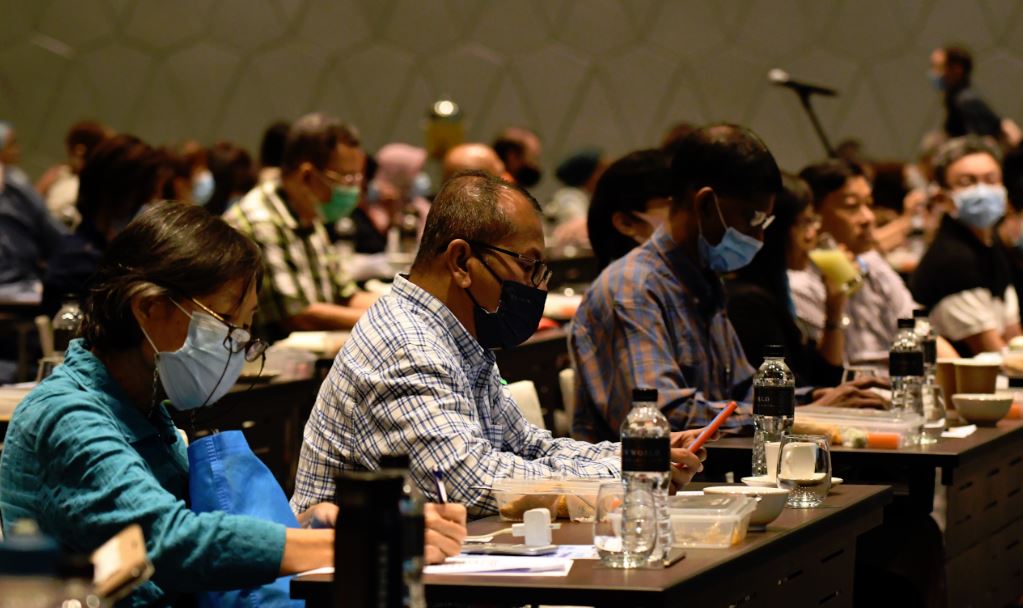
Questions from the audience were forwarded to the respective speakers at EdgeProp.my Symposium on Excellent Property Management 2021 following the event on April 10.
The replies are mainly the speakers’ personal views and do not constitute any form legal or investment advice. Questions and answers have been edited for clarity.
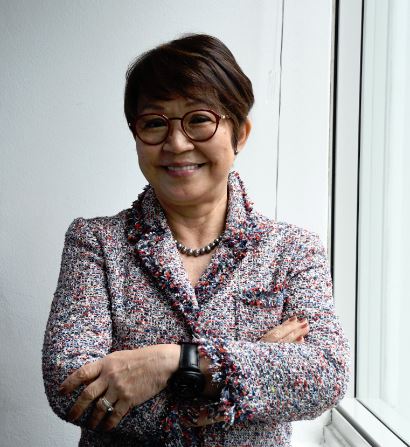
Au Foong Yee
Editor-in-chief and managing director EdgeProp Malaysia
Q: Location vs developer reputation – which one should come first?
A: Location and developer’s reputation and track record are equal key considerations when buying a property. Do ensure the developer you intend to deal with is one who is responsible towards building for sustainability. Always ask yourself – can the building be maintained with excellence in a sustainable manner?
The definition of a good location could vary based on a buyer’s specific needs — what is your purpose for investment? Generally speaking, a well-planned development offers placemaking elements which could generate vibrancy in an address. Accessibiliy is another key consideration when selecting a property.
There’s no crystal ball in property investing. However, behind every informed decision is information. So, please do your research.
Q: Can you comment on Jalan Gombak housing market? There are many developments coming up in this area. How will this affect the property value?
A: Gombak is one of the matured housing areas with amenities and tucked within Kuala Lumpur.
The unveiling of new developments in the area and the expected vibrancy can be a double-edged sword. Are they well planned? What are the property types in the pipeline? How about the traffic flow – will there be congestion?
Ultimately, pricing will rest on supply and demand. (Click here to find out more about Gombak property market)
Q: I have a question regarding bank loans. I understand that once a bank has rejected my application, it would subsequently be much more difficult to secure a bank loan. Therefore, may I know which bank has the highest loan approval rate?
A: Housing loan applications are evaluated based on considerations such as whether you have a good credit score, debt servicing ability and a good employment record. Are you borrowing beyond your means? Do you have a high debt service ratio? Do you clear your credit card debts in a healthy manner?
Check with the loan officer on reasons for the loan rejection. He or she would be the appropriate person to advise you the necessary. (Click to visit the EdgeProp.my loan check calculator to know how much you could borrow.)
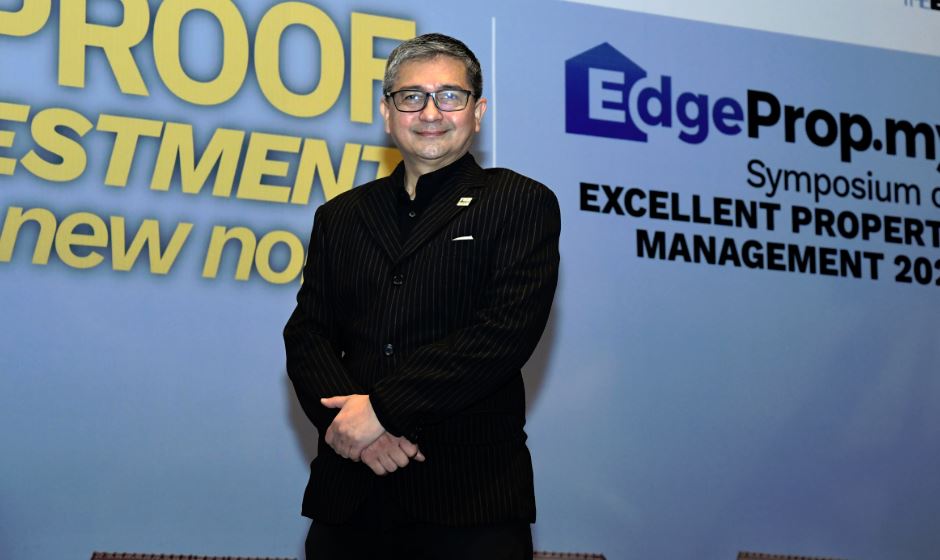
Adzman Shah
Malaysian Institute of Property & Facility Managers (MIPFM) president
Q: As a new owner of a property, how do I find out who the members of the management committee are? Do I have to refer to the developer office? Or do I form a group on my own?
A: A new owner in a strata development should first enquire at the management office whether the Joint Management Body (JMB) or Management Corporation (MC) has been formed, which will determine whether there is a management committee in place or not. If it is a gated-and- guarded development, the new owner should ask if the Residents Association or any other homeowners association has been formed.
Q: Is there a need for strata property developments to have an e-property management system? If there’s none, could owners request from developers upon taking vacant possession (VP)?
A: Every strata and gated-and-guarded development should have a property management software system as it can provide billing, accounting, payment portal and community portal all in one. However, the existing legislation does not state specifically that the developer must provide it upon VP.
Developers normally already have their own systems to do billing and collection for the developer’s management period. Owners may make the request for such a system to be provided but it depends on whether the new software has been budgeted for under the prevailing collection.
Q. I am staying in a low-density strata development and we found that the monthly maintenance charges are too expensive for most of the residents (around RM500 and RM600), what could MC do to reduce the maintenance cost?
A: Low density strata development tends to be rather challenging as it often lacks economy of scale to cover the operating expenses. There are ways to keep operating costs lower by ensuring usage of utilities is monitored closely to achieve cost saving such as implementing timer control, alternating lighting for corridors and car parking and encouraging natural lighting, using solar lights for external area lighting, analyse the cost of operating the managing office to ensure optimum headcount and outsourcing certain functions to external service providers, invest in technology such as cctv system to minimise security headcount, etc.
Most importantly, ‘leakages’ need to be avoided such as unnecessary expenditure. There should also be proper purchasing procedure in order to ensure there are at least three quotations from three different unrelated companies and even after that, proper negotiations should be undertaken.
Another way is also to identify opportunities where revenue can be generated such as renting out spare car parking bays, redundant common area space, etc subject to proper process such as adding the activity into the bylaws and obtaining relevant approval from the local authorities should be adhered to.
Q. If property owners of a strata property have any questions on the management expenses, do we have the right to view the accounts and the invoices of expenses incurred for the property or we could only do so during the AGM?
A: The Committee should normally display the management accounts on the notice board after each monthly or bi-monthly meeting. Under Act 757, parcel owners or prospective purchasers can apply to the developer or JMB/MC to obtain information on the management accounts subject to payment of fees not exceeding RM50.00.
Q: In cases where the residents do not comply with the house rule, such as refuse to wear a face mask in common areas, what could the property manager/ management office do?
If the house rules contain the rules that residents and visitors must wear facemask when in public places at all times, then breaching the house rules is an offence.
There should be clear notices placed in strategic places to remind the residents on such rules as well as the SOP implemented by the Government. The practice should be to politely remind the residents and visitors to comply.
If they still repeatedly refuse to do so, the Management Office should instruct the security guard to handle the matter even to the extent of making a police report if the matter is considered serious and affecting the public.

Anthony Lee Tee
Architect Centre building inspector, trainer and director
Q: I want to buy a house and have considered looking into the sub-sale market. But I'm a bit sceptical because it is not new and I’m afraid that the property might not be in a good condition due to ageing. What should I do?
A: Buying a sub-sale property should be an enjoyable experience if you are equipped with the right knowledge and ask the relevant questions. Unlike buying a new property off the plans, you can see the completed unit, its location, views and condition and assess the immediate surroundings.
Get professional help – engage an accredited building inspector to carry out an independent building condition inspection. If you are looking at a strata property, check the common property as well. In addition, speak to the members of the JMB/MC and property manager regarding the collection of service charges, sinking funds and security aspects of the development.
Meanwhile, take a look at the notices and upgrading plans on the notice boards, which could reveal a lot about the community engagement and involvement in the property.
Q: You've mentioned that installing an air-conditioner (AC) doesn’t mean good IAQ (indoor air quality). What type of AC should I avoid, and should I invest in a high-end product? What other ways can I improve my IAQ without AC?
A: Most residential properties and their common facilities are fitted with ACs with compressor units located outside and connected to separate “blower” units inside – hence commonly known as “split AC units”. Although some brands have built-in features (such as nanotechnology and ionisers), generally all modern split AC units do not feature fresh air intake, which is a major factor in ensuring good IAQ.
As indoor air is known to contain two to five times more toxins compared to outside air, a mixture of fresh air is important to dilute the toxins (flushing) when the AC is operating. Hence, it is good to open windows and doors with the ceiling fans running to flush stale air out and bring in fresh air every morning. Operating the AC with window or door slightly ajar can improve fresh air mixture.
Q: What are some of the revelations found in terms of building safety with the onset of Covid-19? As there may be some things that have been neglected by developers, property managers and residents before Covid-19. What should they focus on instead?
A: The effects of Covid-19 exposed many shortcomings within properties which were complacent to emergencies and forced many property managers and residents into stop gaps measures in dealing with these emergencies when the WFH orders came in full force. It was apparent that properties which have implemented ‘preparedness’ irrespective of Covid-19 from the onset fared much better over others.
While some managed covid cases with proper communications, information, sanitization, assistance and communal spirit of neighbourliness, others mishandled an already traumatic situation of covid cases with stigmatised shaming and fear of infection and contamination.
Preparedness for any emergency (notwithstanding Covid-19) for e.g., in the event of a fire, smoke, water cuts, break-in, mantrap in lifts, burst pipes, clogged sewerage pipes, broken glass or electrical cuts should form the foundation of building safety.
Preparedness should be focussed on hardware (i.e., equipment in good working order) and software i.e., communications, SOPs, security, maintenance and management staff working closely with the JMB/MC, Residents and Tenants.
While many occupants and managers relied on ‘if it’s not broke don’t fix it’ mindset had to endure clogged sewerage pipes, broken pumps and broken lifts which did not have replacement parts due to the long MCO lockdowns.
Ultimately, with the many lessons learnt, one thing stood out - property developers should respond with designs which are practical and maintainable, while JMB/MC and Property managers should focus on basic issues of predictive and preventive maintenance.
Q: I live in an old condo and frequently experience lift breakdowns. Works have been done yet these breakdowns seem to happen multiple times in a year. The maintenance takes a long time too. Any solutions?
A: An old condo will have old lifts. Even the most reputable brands of lifts will require expensive and frequent replacement of major parts and components which may no longer be easily available.
If your property is more than 25 years old, it is high time to replace the entire lift system. This entails a major expenditure of sinking funds, hopefully there is enough money saved, otherwise, you may need to buy a pair of running shoes and start using the stairs.
Before you (through your MC) start getting quotes and ordering new lifts, get an independent lift inspection to ascertain its condition and professional advisory for what to do next.
Q: What is our responsibility as residents to make sure maintenance upkeep of the building's facilities are in good condition and safe to ensure smooth sailing community living.
A: Strata living is community living which requires the collective responsibility of all parcel owners to share in the upkeep, management and maintenance of your investment. Malaysia has clear laws and regulations under the Strata Management Act 2013 which govern all strata properties.
Get a copy of Strata OMG 2.0 – Owner’s manual & Guidebook by Edgeprop.my and Chur Associates; and engage a reputable property manager as part of your management team.
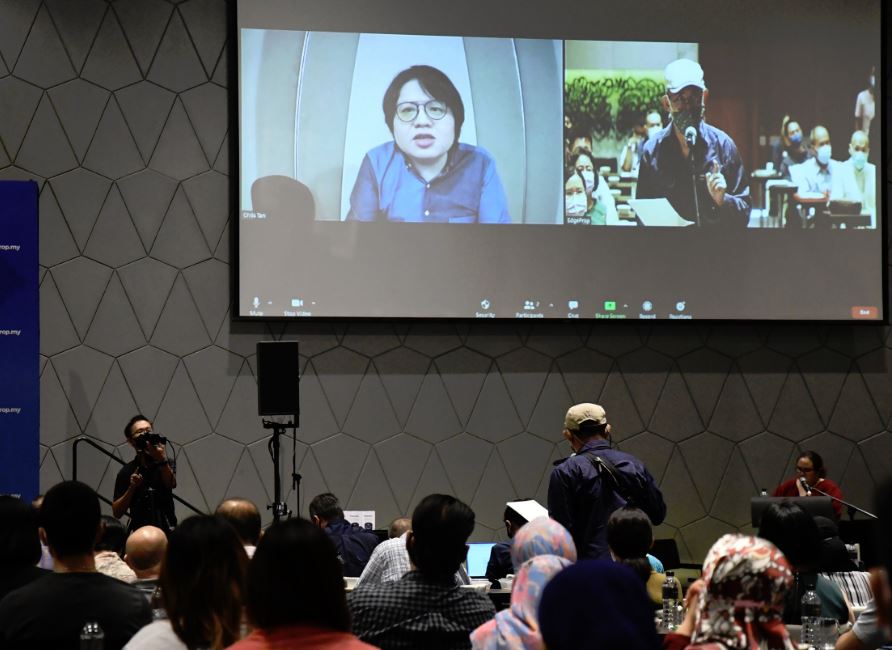
Chris Tan
Chur Associates founder and managing partner
Q:Under the defect liability period (DLP), if a water tank is leaking, should the cost of fixing the leakage be borne by the developer or deducted from maintenance fees?
A: Rectification of any defects during the DLP is at the cost of the developer and should not be deducted from the maintenance fees.
Q: The developer didn’t deliver the facilities as promised when we purchased the unit. What should buyers do?
A: Buyers have the right to a legal claim in the civil court or the Tribunal for Homebuyers.
Q: How do we know when we should use the funds from the maintenance fees or sinking fund when it comes to repairing or upgrading facilities?
A: If it is a one-off payment, it is likely to be a capital expense, thus it should be from the sinking fund. If it is a routine or scheduled maintenance, it should be from the service charge collection.
Q: I just got my apartment’s key early this year and realised that my car park is next to a rubbish disposal area. Can I request to change my parking spot to another (such as a visitor's car park) due to hygiene concerns?
A: If you are collecting the keys early this year, it is very likely that you have taken vacant possession of your unit with the relevant strata title issued. In that case, it will be very challenging to change the car park lot as already provided in the strata title.
Q: What is often seen "missed out" during an AGM/EGM that causes the most problems?
A: It is the lack of proper scrutiny of the budgeted expenses that determine the rate of service charges.
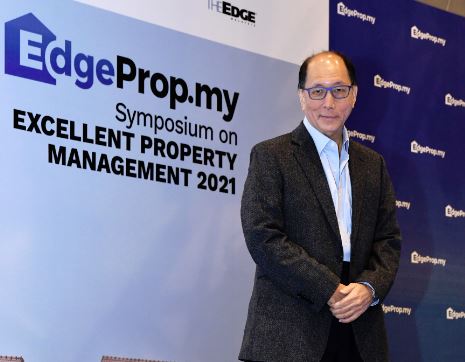
Khaw Chay Tee, Sri Penaga MC past chairman
Q: How do I know if the condominium is well-managed?
A: Ask the following questions:-
Is the management committee active and engaged?
Take a look at the notice boards. Are the notices informative and up to date? Have the latest minutes of management committee meetings been posted up? Is there a list of defaulters and how many are there?
Is the property management team competent, committed, open and transparent?
When you enter the condominium, are the security guards alert and competent?
Visit the management office and ask questions about the condominium as a potential purchaser, e.g. what is the occupancy rate? Are they mainly owners or tenants? What projects are in the pipeline?
Is there a maintenance culture in place?
Check out the facilities. Are the gardens well kept? Are the common areas and public toilets clean? Are the lobbies welcoming and the lifts working? Is the gym equipment working? Is the swimming pool well maintained?
Q: How do we handle residents who are constantly complaining about how the property management company manages the property but do not offer practical solutions?
A: Every condominium should have a website where any owner or resident can log in and lodge a complaint which will be assigned a ticket number and which will then have to be dealt with by the property management team. All complaints received and the actions taken by the property management team have to be reported at every management committee meeting.
If your condominium does not have a website, then you can perhaps start with a complaint record book that is kept in the management office where residents can fill in the date, their details and their complaints on one side and the management can fill in the action taken, who attended to it and the date on the other side of the complaint record book. This record book should be reviewed at every management committee meeting, if not more frequently.
Another alternative is for the management committee to arrange a meeting (physical or online) with the complaining residents together with the building manager for all parties to seek a solution to the complaints.
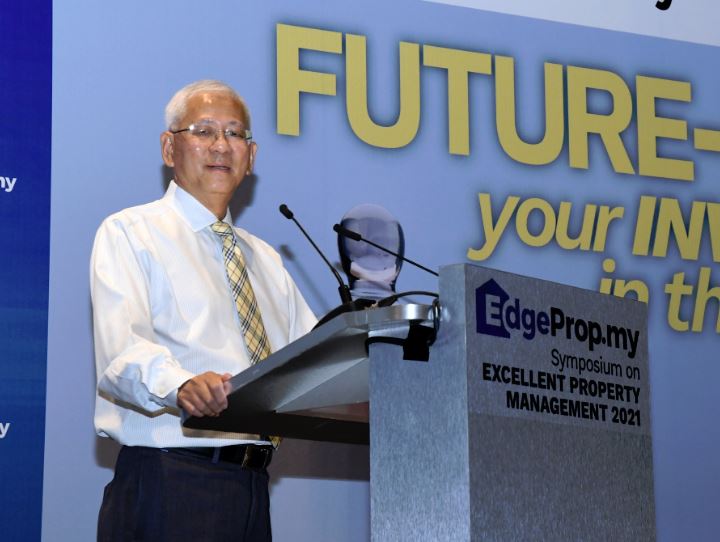
Ken Yeo Kian Ing
Westside III @ Desa ParkCity JMB chairman
Q: For high-end projects like Westside III, do you face problems of residents with overly high expectations? It seems like whatever we do in the MC committee is never enough.
A: Certainly, and I feel for you. This seems to be a universal problem where JMBs or MCs are concerned. It’s just human nature, some characteristics of which are insatiable demands, high expectations, the “entitled” attitude, etc.
First of all, the JMB/MC committee members are elected from the pool of owners. Therefore, they are the rightful representatives of the owners. Once elected into the JMB/MC committee, they are given the mandate to manage the property, with the help of a capable property management company, of course. The mandate gives authority to the JMB/MC committee members to decide and act on the owners’ behalf.
Any project should be deliberated or debated on by the JMB/MC members, after which proposal(s)/options would be laid out to the JMB/MC for a decision. Typically, three quotations should be obtained from outside vendors for the JMB/MC to decide on. A vote by the JMB/MC members would be held and the majority wins. Once the decision is made, the JMB/MC would be expected to toe the line and stay united to execute the decision. This whole process should be put on record. When challenged by other owners, the minutes of the meetings would serve to inform them that the decision process has been followed.
Of course the condo must have sufficient maintenance or sinking funds to pay for the project(s). Besides, there must also be sufficient funds left over to finance the day-to-day operations of the condo. By law, a JMB/MC cannot borrow money or go into debt.
Q: We have found out that some of the residents in the condo have been renting out their units for Airbnb even though the house rules clearly state we are not allowed to do so. Some of these owners are new to strata living and they say we have no right to stop them from doing what they want as they are the owners. What do we do?
A: If the house by-laws clearly state that no owners are allowed to operate Airbnb business, then the management has the right to enforce the ban on the Airbnb business within the condo. I suggest that owners augment or reinforce this rule by adopting a “No operation of Airbnb” in the next annual general meeting (AGM). If any owner wishes to change the by-laws, then it has to be raised and voted on in an AGM or extraordinary general meeting (EGM).
However, the management should first educate and inform the new owners of the condo’s by-laws prohibiting Airbnb in the condo. The management has to convince them of the legality of the by-laws. Then, notices can be posted at highly visible areas in the condo such as the lifts, informing all that Airbnb is NOT allowed. Should owners continue to flout the by-laws, they can be warned and if they flout the rule again, then they can be fined in accordance with the by-laws. Should this fail, the management may refer the errant owners to the Strata Management Tribunal.
Another alternative is to ban short-term rentals. The condo by-laws can specify the minimum rental period permitted, say six months. Bear in mind by-laws can only be instituted, amended or removed in the AGM or EGM.
Q. What are some of the challenges which Westside III face as a pet friendly condo and how are these challenges overcome?
A: Challenge #1: One very common problem that we faced is that of dogs urinating or defecating in the lifts or at the common areas. A responsible owner would have cleaned up the mess thoroughly whereas an irresponsible owner would just walk away, intentionally or otherwise, oblivious to the mess that the dog had left behind.
How to overcome this challenge:
- Pets must be placed in pet prams or in courier bags (for small dogs) to be able to access common areas and to use the passenger lifts.
- If not in a pet pram or in a carrier bag, the pets have to be leashed and they can only use the service lift.
- CCTVs in the lifts and common areas: We would request Security to review the video recording and identify the culprit.
- By-laws for pet violations: A warning letter would be issued for a first violation, after which a fine of RM200 would be imposed for each subsequent violation. The by-laws of the condo would make the process and the fine legitimate.
- Westside 3 Pet Facebook Page: We use this channel to communicate the pet-ownership rules and best practices and to share pet news.
- Adopt the spirit of responsible pet ownership – be responsible to other owners for their pets and this will save you a lot of grief later.
- A very responsive cleaning team will jump into action very quickly if it is within their working hours. Otherwise, the guards will clean it when cleaners are not available.
Challenge #2: There may be violations of the pet access rules to the common areas such as the condo ground floor lobby, children play pool and swimming pool areas, barbeque pits, multiple-purpose hall, children playground, etc.
How to overcome this challenge:
- Pets must be placed in pet prams or carry bags (for small dogs) only at such places and when using the passenger lifts.
- If not in a pet pram or in a carrier bag, the pets have to be leashed and they can only use the service lift.
- CCTVs in the lifts and common areas: We would request Security to access the video recording and identify the culprit.
Challenge #3: Unregistered dogs (by the condo and the local City Council (DBKL)
How to overcome this challenge:
- We assist and facilitate the dog owners to first register with the condo’s Management Office. The condo Management Office will then issue a pet authorization letter to be used to register with the local Town/City Council.
- Register with the city council to get a pet licence.

Lawrence Loh
Kiara Park Condominium MC secretary and past chairman
Q: Our development is as old as Kiara Park. Some equipment is in need of replacement while our building also needs a fresh coat of paint. Lack of sinking fund is one of our problems in upkeeping the common areas. What should we do?
A: There are two issues in your question: ageing equipment and the need for a repainting — and both are actually crucial to your development in different aspects.
Equipment parts that are mission-critical such as water pumps and back-up generators or boilers should be replaced or repaired if broken down and should not be neglected.
At Kiara Park, we are careful not to be penny wise and pound foolish. Case in point: our lift system at the high-rise block was breaking down too often quite a few years ago. We could have just kept on plugging holes and deplete our funds in the long run. While the obvious solution seemed to be to replace the lifts, careful technical analysis by the MC showed that we should replace certain sections but with much higher specifications to ensure longevity, and at the same time save us a hefty sum!
Having said this, maintaining any building, old or new, costs money. Until and unless residents understand this fundamental tenet of strata living, it will always be an uphill task to get more funding.
Communication is crucial in this issue. The JMB/MC should start talking about preserving their individual investments and you may start to see sentiments turn. We know this works because we achieved this at our last AGM by getting residents to agree that unless we continue to put money into maintenance, we would all be at the losing end. And no one wants to lose —especially money.
Q: What could the residents do if the decision made by the MC is not for the majority’s benefit? Is there anything that could be done by the property management company?
A: This is a common concern among strata developments. The resolve is identifying the definition of “the majority’s benefit”.
We built a very nice OKU toilet at our clubhouse two years ago. We don’t think there are actually many, if any at all, OKU residents in our development. In this scenario, we did not act in the interest of “the majority’s benefit”.
However, this is much more than just an issue of being on par with newer strata properties where OKU facilities is a requirement. This is really about doing what is right — to care and provide for those less fortunate than us, when the need arises. We could have been selfish and “save money” but we did not.
So “the majority’s benefit” is something that needs to be tempered with consideration for aspects which many may be blind to and especially when it’s about “spending unnecessarily”.
MCs are run by owners together with your property management personnel or appointed property management company. Your property manager has no say in decisions concerning your collective property, so it is really up to the MC to make decisions. The former can dispense advice but the decision ultimately rests on the shoulders of MC committee members who are really representatives of residents. Therefore, choose your MC committee members well or suffer for it.
The key to an effective MC is having a team that has the ability to consider all facets of any issue, being particularly careful to blind spots, and then to make and stand by their decisions, which must be able to stand up to the highest level of scrutiny.
Q: How do we encourage more fresh blood to come into the MC committee? The MC committee in our condo is always chaired by the same few people.
A: There are many facets to the intent of such a question. Is it a matter of transparency and to avoid a form of dictatorship? Guidelines by the COB and relevant strata laws are already in place to curb such abuse, if any, by limiting office bearers to serving a maximum of 3 consecutive terms before they have to step down.
There are also avenues for independent audits if residents have grounds to suspect accountability issues. At Kiara Park, we initiated an independent audit a few years ago, although that gave us a substantial bill, to satisfy the suspicions of certain residents. No irregularities were found from that exercise. We prevent abuse of power within the MC by requiring all significant proposed expenses to be subject to multiple cost estimates by relevant vendors in addition to having the proposal displayed on our residents’ notice board to invite relevant contacts of residents to bid for the respective jobs as well. We also conduct technical interviews with vendors to shortlist. However bear in mind that it is a poor policy to award a job based solely on costs alone, especially when one is unfamiliar with the mechanics of specific works.
If the intent of the question is merely about having fresh blood for the sake of having fresh blood, there is actually grave danger in such a framework. If the MC is performing well—objectively—there is no absolutely no reason for change per se.
Perhaps at this juncture the fundamental question ought to be this: “Should residents be concerned about always having the same people serve in the management committee if they are governing well and operating efficiently?”
There is obviously a place and need for fresh blood because one cannot serve forever. The challenge is more of how an MC enlists fresh blood. More often than not, residents are drafted in, typically at the AGM, without any verification on the suitability of individuals. Some are roped in because they’re louder than others. Remember, the work of an MC is not a walk in the park. Many residents serving in MCs last only a term, with some leaving before a term ends. It is common to see a lack of commitment in MCs with members turning up for meetings as and when they like.
An efficient MC requires a combination of technical competence, leadership and relational skills, individuals with a pleasant disposition, and most importantly, the ability to work together for the good of the community. You can’t put a pitbull terrier in an MC! And do not put any self-serving resident who wants to be in the MC, especially those who are excellent at whining and not lifting a finger to help resolve issues.
Fresh blood does not just appear. They need to be cultivated. It requires serving MC members to spend time developing relationships with residents. When you are able to establish a particular resident’s professional background, temperament, personality and conviction to serve selflessly then you can be sure you have a suitable candidate to consider. Test them out in a relevant sub-committee—observe them and then make a collective decision within the MC.
One effective way to identify good potentials is to organise a community clean-up within your development. You can be sure those who turn up have the right mindset to serve and from there you can narrow down.
Missed our annual symposium? Click to view the symposium video
Get the latest news @ www.EdgeProp.my
Subscribe to our Telegram channel for the latest stories and updates
Follow Us
Follow our channels to receive property news updates 24/7 round the clock.
Telegram

Latest publications
Malaysia's Most
Loved Property App
The only property app you need. More than 200,000 sale/rent listings and daily property news.
